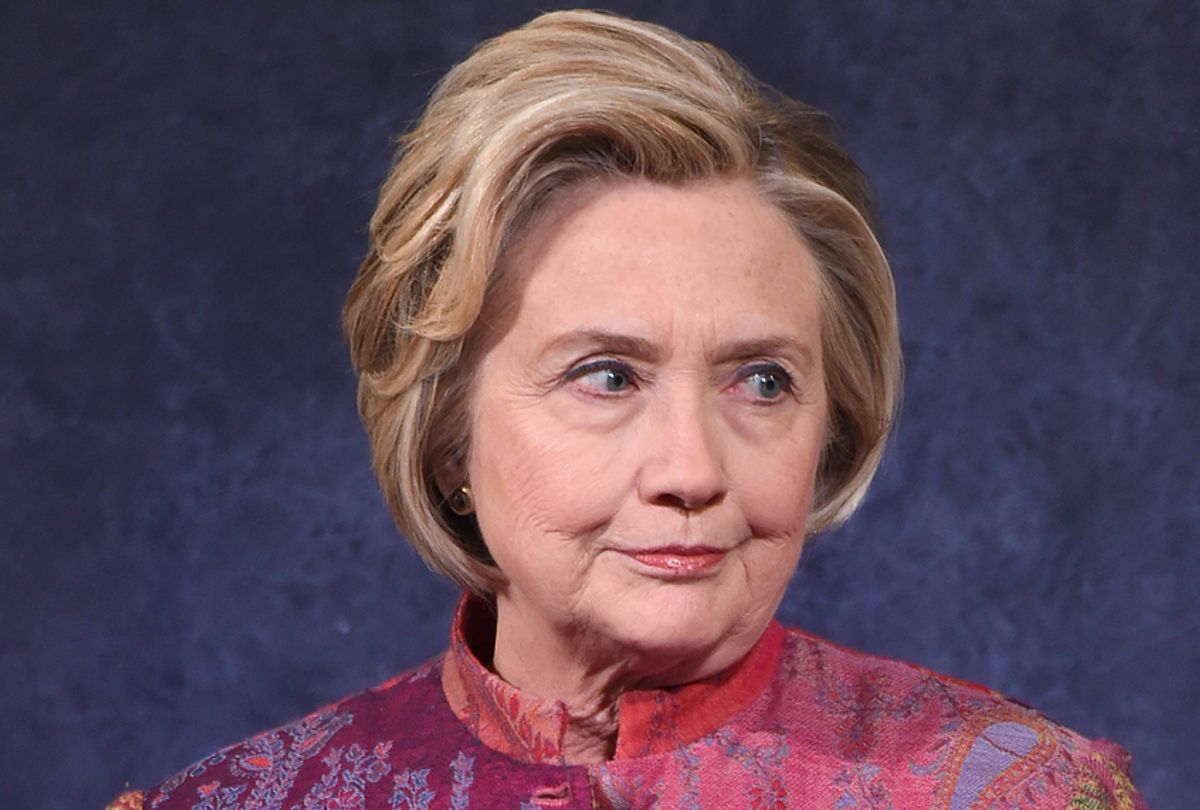Hillary Clinton doesn't hold any public office — and she isn't running for anything — but if you were to listen to conservative media outlets and Republican campaign ads, you could be forgiven for thinking otherwise.
In three different states, Republican candidates or groups have released advertisements that try to advance their own cause by tying their Democratic opponents to the unpopular 2016 presidential nominee, according to NBC News. In Florida, the National Republican Senatorial Committee released a digital advertisement attacking Democratic Sen. Bill Nelson by referencing his endorsement of Clinton during the presidential election, as well as her controversial reference to Trump voters as "deplorables."
A Missouri candidate seeking the Republican nomination against Democratic Sen. Claire McCaskill, State Attorney General Josh Hawley, used a similar approach. Instead of referencing Clinton's "deplorables" line, he released an ad that included a quote from her recent speech in Mumbai which referred to Trump voters as "backwards." The spot ended with this voiceover: "This is what Claire McCaskill and her 'president' think of you."
Finally, in West Virginia, Republican Rep. Evan Jenkins — who hopes to be the nominee opposing Democratic Sen. Joe Manchin — also referenced the Mumbai speech in an ad that closes with images of inner city riots on the screen.
"It's Hillary who's got it backwards. The big cities she won are the places flooding our state with heroin — where lawlessness, looting and liberalism rule," Jenkins states in the ad's conclusion.
Clinton isn't the only prominent woman being attacked as a straw man by Republican candidates in 2018. The other one is House Minority Leader Nancy Pelosi, who has appeared in roughly one out of three Republican broadcast ads released for House elections this year, according to USA Today. By contrast, she was only mentioned in 9 percent of the House ads aired during the 2016 election cycle and only 13 percent of the ads aired during the 2014 election cycle.
"We’re going to spend millions and millions of dollars reminding voters across the country why Nancy Pelosi is bad for the country. Nancy Pelosi is the most toxic, unpopular politician in American politics, period, end of discussion," Corry Bliss, director of a Republican Party Super PAC known as the Congressional Leadership Fund, told USA Today.
"They chose to go this route mainly out of a lack of anything else to talk about. When you’re the party in charge and your president is in the White House, the mid-terms will be about the president and his party. There is no way around that. There is no historical correlation between who wins a mid-term and who is the minority leader of the House of Representatives," Pelosi spokesman Drew Hammill told USA Today.
Although candidates like McCaskill and Indiana Sen. Joe Donnelly (another Democrat seeking reelection in a competitive Red State) have tried to distance themselves from Clinton, the former secretary of state has not responded to the discomfort that many Democrats feel with her prominence, much less the sense that she could be a political liability. At the same time, she has made it clear that in a general sense she resents attempts to silence her after her upset defeat at Donald Trump's hands — and considers those efforts to reflect a double-standard against her as a woman.
"I was really struck by how people said that to me -- you know, mostly people in the press, for whatever reason — like, 'Oh, you know, go away, go away,'" Clinton remarked at an event at Rutgers University last month, according to CNN.
She added, "They never said that to any man who was not elected. I was kind of struck by that." After noting that the last four Also Rans all pursued high profile careers after their losses — Al Gore as an advocate for fighting climate change, John Kerry as a senator and Secretary of State, John McCain as a senator and Mitt Romney as a senate candidate — she insisted that she is "really committed to speaking out and doing what I can to have a voice in the debate about where our country is going."

Shares